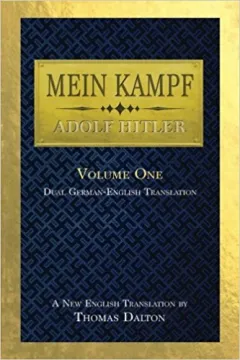Adolf Hitler on 'War Propaganda'
Continuing with passages from Mein Kampf, 2017 Thomas Dalton translation. See here.
Chapter Six is titled WAR PROPAGANDA. It contains the young Hitler's thoughts on Germany's failure to use effective propaganda against the enemy in the Great War, and compares it to the successful propaganda against Germany by the English in particular. This relatively short chapter contains great lessons for us in the fight against any enemy.
P347 6.1 THE PURPOSE OF PROPAGANDA
Germany was waging war for its very existence. The purpose of its war propaganda should have been to strengthen the fighting spirit in that struggle, and to help bring about victory.
But when nations are fighting for their existence on this earth, when the fateful question of “to be or not to be” must be answered, then all humane and aesthetic considerations must be set aside. These ideals don't float about in the air, but are the product of man's creative imagination; they disappear when he disappears. Nature knows nothing of them. Moreover, they are characteristic of only a small number of nations—or rather, of races—and their value depends on the degree to which they spring from the national or racial feeling. Humane and aesthetic ideals will disappear from the inhabited earth when those races that created and upheld them disappear.





